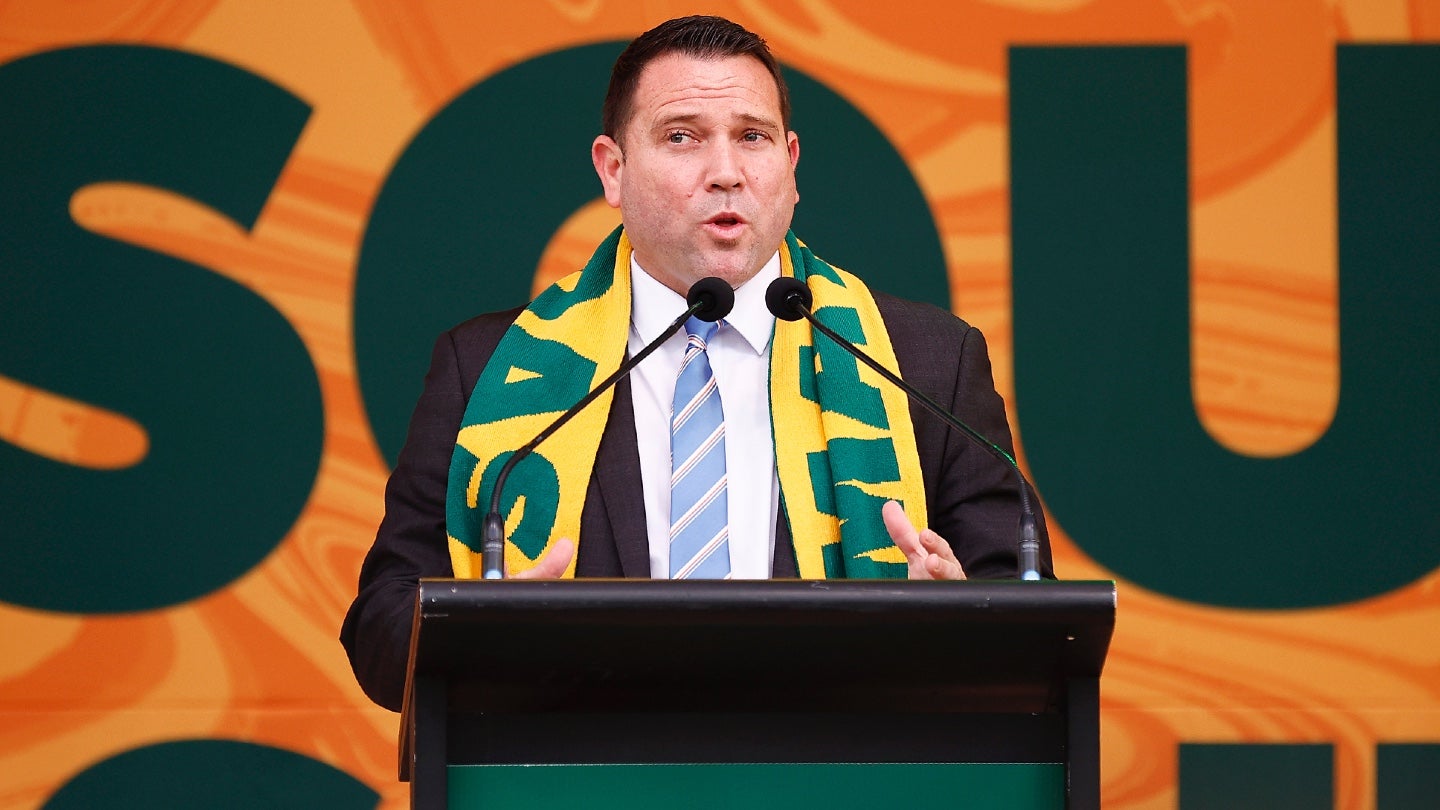
James Johnson, chief executive of the Football Australia national governing body, has called for a review and rethink of the stadiums selected as host venues for soccer at the 2032 Brisbane Olympics in that country.
Johnson spoke to members of Australia's parliament late last week and said that various venues chosen to put on soccer matches at the Olympics in nine years’ time were simply not big enough.
He also mentioned, in the context of the country needing to invest in its soccer infrastructure, a potential bid for the 2034 men’s FIFA World Cup national teams’ tournament. Australia missed out on hosting the 2022 edition, which went to Qatar, and has been assessing the potential of a bid for 2034 for the last two years.
Johnson's comments come on the back of Australia – alongside New Zealand – successfully staging the 2023 FIFA Women’s World Cup (WWC) across July and August. That tournament secured records in terms of attendance, viewership, and merchandise revenue.
Speaking to the Australian Senate’s rural and regional affairs and transport committee, Johnson said: “In my view, the stadia available [for 2032] are not big enough for soccer. I can categorically say that.
“If this is what is the case for 2032, there are going to be hundreds of thousands of fans that are not going to be able to watch the Matildas [Australia’s women’s national team].”
How well do you really know your competitors?
Access the most comprehensive Company Profiles on the market, powered by GlobalData. Save hours of research. Gain competitive edge.

Thank you!
Your download email will arrive shortly
Not ready to buy yet? Download a free sample
We are confident about the unique quality of our Company Profiles. However, we want you to make the most beneficial decision for your business, so we offer a free sample that you can download by submitting the below form
By GlobalDataHe added that for the WWC, the opening game – Australia vs. Ireland – had to be moved from the designated Sydney Football Stadium with a capacity of 45,000, to Stadium Australia, which has a capacity of 75,000.
On that front, Johnson said: “We would have sold even more than the 75,000 capacity if we had a venue like the Melbourne Cricket Ground [which has a capacity of almost 100,000] available.
“So, I hope there is an opportunity to look at playing in bigger stadiums at this tournament because we are going to need them.”
Johnson added that Townsville Stadium “would not be able to be included in a future men’s World Cup bid because the minimum stadium requirements for a group stage match in a men’s World Cup is 40,000.
Given that the WWC averaged 32,000 fans for each game, the 25,000-capacity Townsville Stadium “is one example of where we could potentially invest and make a bigger stadium that could be part of a men’s FIFA World Cup bid in the future.”
In total, 1.9 million fans watched action from the WWC live, a record total for that tournament.
Regarding interaction with the organizers of the 2032 Olympics, Johnson confirmed: “We have not had any consultation with 2032 to this point, and we hope that we will in the months and years to come.
“The question for us is can some of the decisions that are being taken right now with the Brisbane 2032 Olympic and Paralympic Games – can they be taken with a future men’s FIFA World Cup in mind so that there is no leakage of investment?”
Aside from the men’s World Cup in 11 years time, Australia is also aiming to host the 2026 AFC Women’s Cup.
In August, New Zealand Football chief executive Andrew Pragnell said he would be keen to once again team up with Australia for a men's FIFA World Cup bid.





